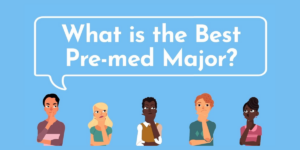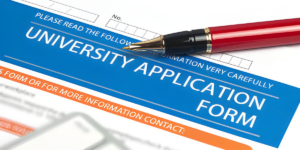Once you have completed your MD program at the Windsor University School of Medicine, you embark on a new chapter of your medical career: Residency. Your medical education doesn’t end with four years of medical school; what follows next are residency and fellowship training, during which students complete three-seven years of training in the specialty of their choice, such as family medicine, internal medicine, or surgery. Since residency training marks a pivotal phase in the journey of every medical student, it is important that all Caribbean medical school graduates familiarize themselves with the concept of the ‘Match’ process, particularly what it entails, and how to prepare for a successful match.
What is the Match?
Caribbean Medical school graduates need to complete hands-on residency training in a desired specialty before they can get board certified and start practicing independently. Depending on your medical specialty, you will need to train between three and seven years before you can apply for medical licensure. In the U.S. and Caribbean, the MATCH, managed by the National Resident Matching Program (NRMP) and accredited by the Accreditation Council for Graduate Medical Education (ACGME), is a centralized system used to assign eligible medical graduates to open residency spots.
According to the Journal of the American Medical Association, the modern residency system was invented during the 1950’s to bring some semblance of order to a highly chaotic system. After residency programs were introduced in the early 1900’s, hospitals were locked in a fierce competition to hire medical students who exhibited the highest potential. In fact, medical institutions started scouting for students who were only halfway through medical school, before another hospital could sweep them off. Not to mention, programs began pressuring students to accept or reject offers within unrealistic deadlines, sometimes within 12 hours of an offer being sent. In 1952, the NRMP was created as a fair and orderly standardized process for pairing residency programs with qualified candidates, looking to fill those positions.
How Does the Residency Match Process Work?
Before you get to the Residency match day, you have to understand how the system works to get you there. The Nobel Prize-winning algorithm-driven Match process is a highly complex program that pairs medical students with the right residency programs based on the applicants’ preferences as well as the institutions’ ratings of the applicant.
The MATCH process starts at the beginning of a medical student’s fourth year, but most students choose to start preparing earlier by building a strong academic, professional, and extra-curricular portfolio. The last two years of Caribbean medical school are spent completing clinical rotations in different areas of medicine, which gives students a good idea of what specialty they would like to practice. Students can browse through the 12,000 Accreditation Council for Graduate Medical Education (ACGME)-accredited residency and fellowship programs and narrow down the ones that align with their chosen specialty. Students may also want to factor in the location of the program, demographics, benefits, osteopathic recognition, etc., when choosing the relevant residency programs.
The MATCH application process opens every September. Students can submit comprehensive applications, most commonly known as ERAS, to different programs in their chosen specialty, along with their personal statement and photograph, letters of recommendation, medical school transcript, Caribbean MD school performance evaluation (MSPE) and licensing exam transcripts. The ERAS system sends all application materials to the residency programs students have selected. Around this time, students also register for the National Resident Matching Program (NRMP) Main Residency Match.
While sending out a lot of applications to different programs may increase your chances of acceptance, it is also important to keep your finances in order. Remember that sending out too can many applications may cost a fortune and put a huge dent in your pocket and doesn’t necessarily improve your results during residency match day.
Interviews
Between October-February, students receive invitations from different residency programs they have applied to. Students visit the institutes or hospitals they have been asked to interview, meet with the faculty, tour the facility, and ask relevant questions. Remember that your residency interview is a two-way road. Residency programs are not the only ones evaluating candidates to fill open residency slots; you are evaluating them just the same. For instance, a residency program may seem promising on paper, but doesn’t check your list when you visit the school in person. Make sure to take plenty of notes during your visit, so you’ll make an informed decision when creating a rank order list of residency programs. We cannot stress the importance of going in to your residency interview well-prepared, which is why practicing with mock interviews and perfecting your body language can come in handy.
Tips for residency interviews:
Arrive Early but Not Too Early: Aim to arrive 10-15 minutes before the scheduled time. Being too early can make you anxious while waiting, and being late can create a bad impression.
Dress Professionally, but Comfortably: Stick to a professional attire, but don’t sacrifice comfort. You’ll likely be moving around a lot, so wear something that allows you to feel confident and at ease.
Practice Your “Why This Program” Answer: Have a clear, genuine reason for why you want to join the program. Avoid memorized speeches. Instead, think of key points and speak naturally to show your passion.
Stay Engaged Even When You’re Not in the Spotlight: Interviewers observe your interactions throughout the day, even during tours or meals. Show interest in the program and your peers. Be kind, polite, and curious at all times.
Be Yourself: This is a big one. They want to see your authentic personality and how you’d fit into their team. Don’t try to be someone you’re not or give the answers you think they want to hear. Genuine interest and being true to yourself will shine through.
Prepare Some Good Questions: Always have a few thoughtful questions ready, like asking about the program culture or how the residents balance work and wellness. Avoid asking questions that can easily be found on their website.
Know Your Application Well: Be prepared to discuss anything you’ve included in your CV or personal statement. Highlight your strengths, but also be ready to talk about challenges you’ve overcome.
Follow Up with Thank You Notes: After the interview, send a personalized thank you note to the program director or any key faculty you met. This small gesture can leave a lasting positive impression.
Create Your Ranked Order List
To help you visualize the Ranked Order List (ROL) clearly, picture this: program directors who are responsible for the residency programs rank all the students they have interviewed, from the best to the least acceptable. Similarly, medical students also create a Ranked Order List (ROL) for programs they have interviewed, from their first choice to their last. The NRMP’s match ranking process opens from January to march, so be sure to submit your final ranking list to the NRMP by then.
We advise our students to rank their preferences by prioritizing the choice, and include all their desired programs on the ROL, especially if they seek placement in highly competitive residency specialties. Even if you doubt you can make it to an especially prestigious program, be sure to rank it on your ROL, rather than basing your decision on where you think you stand the greatest chance of matching. Afterall, ranking one program doesn’t hinder you from being considered for other programs on the list. Even if you don’t get accepted in a program you have ranked higher, programs lower on your list can still generate a match.
However, keep in mind that the match process is binding, so refrain from including any program on your ROL that you do not want to work in. So, if you see yourself as a poor fit for a particular program that you have interviewed, we advise not ranking it at all, since there’s a chance you might end up on that spot.
R3: The NRMP Match System
Here’s where the magic happens: NRMP uses an algorithm that matches candidates with programs based on these rank order lists. It’s designed to favor the applicant’s preferences. For instance, if your first-choice program ranks you highly too, you’re matched there. If not, the algorithm moves down your list. Here’s how the algorithm actually works:
- The R3 system starts with the first-choice residency program of each applicant. It checks whether that program has ranked the applicant highly enough to consider them. If the program has a spot available and the applicant is high on its rank list, the applicant is tentatively matched to that program. If not, the algorithm moves to the applicant’s second-choice program and repeats the process. However, at this point, the match is still tentative—no one is fully matched yet.
- If a candidate’s first choice isn’t available or another applicant who is ranked higher on the program’s list displaces a “tentative” student, the previous candidate will lose the match. The R3 moves the candidate to their second-choice program, continuing down their rank order list if needed. This process ensures that each spot is filled by the applicant who is ranked highest by the program.
- The algorithm continues this process until each applicant is either tentatively matched or has exhausted their preference list, and each program has filled its available slots with the highest-ranked applicants it can get. Once R3 completes the ranked-choice process, the Match is final and legally binding.
Why This Algorithm Works Well:
- Fairness: Since applicants are placed based on their highest preferences that programs can accommodate, the match is fair and avoids favoritism towards programs.
- Efficiency: It ensures that the maximum number of applicants get matched to the programs they want.
- Stability: Once the algorithm completes, no applicant or program can improve their outcome by being matched with a different person or program.
Match Week
Your wait is almost over in the week leading up to the Match-day. Years of rigorous medical school education, rigors of clinical rotations, and months of research, applications, rankings and interviews all boil down to the Match week. Match Week takes place during the third week in March each year. At exactly 10am ET on the Monday of that week, students receive an email notifying them whether they’ve matched with a residency program—but not where they will receive training.
Do not panic if you didn’t match; there is another avenue for finding a great postgraduate position. Applicants who failed to match in any residency program are eligible to apply to the Supplemental Offer and Acceptance Program® (SOAP®), a NRMP-run system that takes place to match unfilled residency positions with eligible unmatched applicants. All eligible unmatched, or partially unmatched applicants submit new applications to programs with unfilled residency positions, appear in interviews, and then are offered positions in four rounds, each lasting for two hours. After receiving an offer in round 1, applicants have two hours to either accept or reject it. Most positions are filled in round 1. We always advise our students to accept the first offer they receive, rather than wait for the second round [of SOAP], since the availability of openings decreases significantly with each round. The entire process takes place Monday through Thursday of Match week.
Not matching after SOAP can be devastating for MD graduates. If you still find yourself un matched after SOAP, review the final list of unfilled programs. You can contact these programs directly and ask for interviews. They can extend an offer to you at any time should anything open up. Alternately, you can look up the Open Residency & Fellowship Positions page on the American Medical Association (AMA) website for to see if any residency program has unfilled spots left.
Match Day
By the Friday of the match week, you’ll know the specific program where you matched. At 12pm ET on Friday, your match results are officially released via email. A lot of MD programs commemorate the most memorable and consequential day of their students with an official Match Day ceremony. Each year, plenty of WUSOM graduates successfully match at leading hospitals across the U.S. and Canada, in highly demanding specialties; click here to check out the results of recent matches for WUSOM students.
What to do After you have matched?
We say, you celebrate and give yourself a pat on the back. You just achieved a major milestone in your life. Catch a breath, do what you love, hangout with your loved ones, for the next phase of your medical journey will be long and arduous. But once your initial jubilation and excitement has dwindled down, it is time to prepare for any requisite coursework and/or exams before graduation. Remember: you still have a few months of medical school left. Don’t let the euphoria of having matched, let your focus slip from the upcoming exams. Even though you have secured your desired residency spot, you still want to finish medical school strong.
Now that you know where you will complete your residency, you might also want to look ahead and start planning your potential move. Especially if you need to relocate to complete your residencies, you will have to find suitable accommodation, maybe buy a car, secure you finances, etc. Start researching and preparing these details as soon as possible. Also, expect to receive paperwork from your residency program. This may include employment contracts, credentialing forms, health insurance details, and other onboarding documents. Review and complete them promptly. You might also need to look into your finances. Review your loan repayment options, consider setting up a budget, and think about saving for any relocation costs. You might also want to look into income-driven repayment plans or loan forbearance programs for your student loans.
Wishing for the right MATCH?
Join us at the Windsor University School of Medicine and start on a path paved with excellence, innovation, and opportunity. WUSOM students get all the support they need, be it residency match, clinical rotations, or any clinical experiences. Explore our MD program and learn how WUSOM is preparing the next generation of compassionate and competent physicians.
Interested in learning more about our program or want to apply for the upcoming January semester? Contact us.







